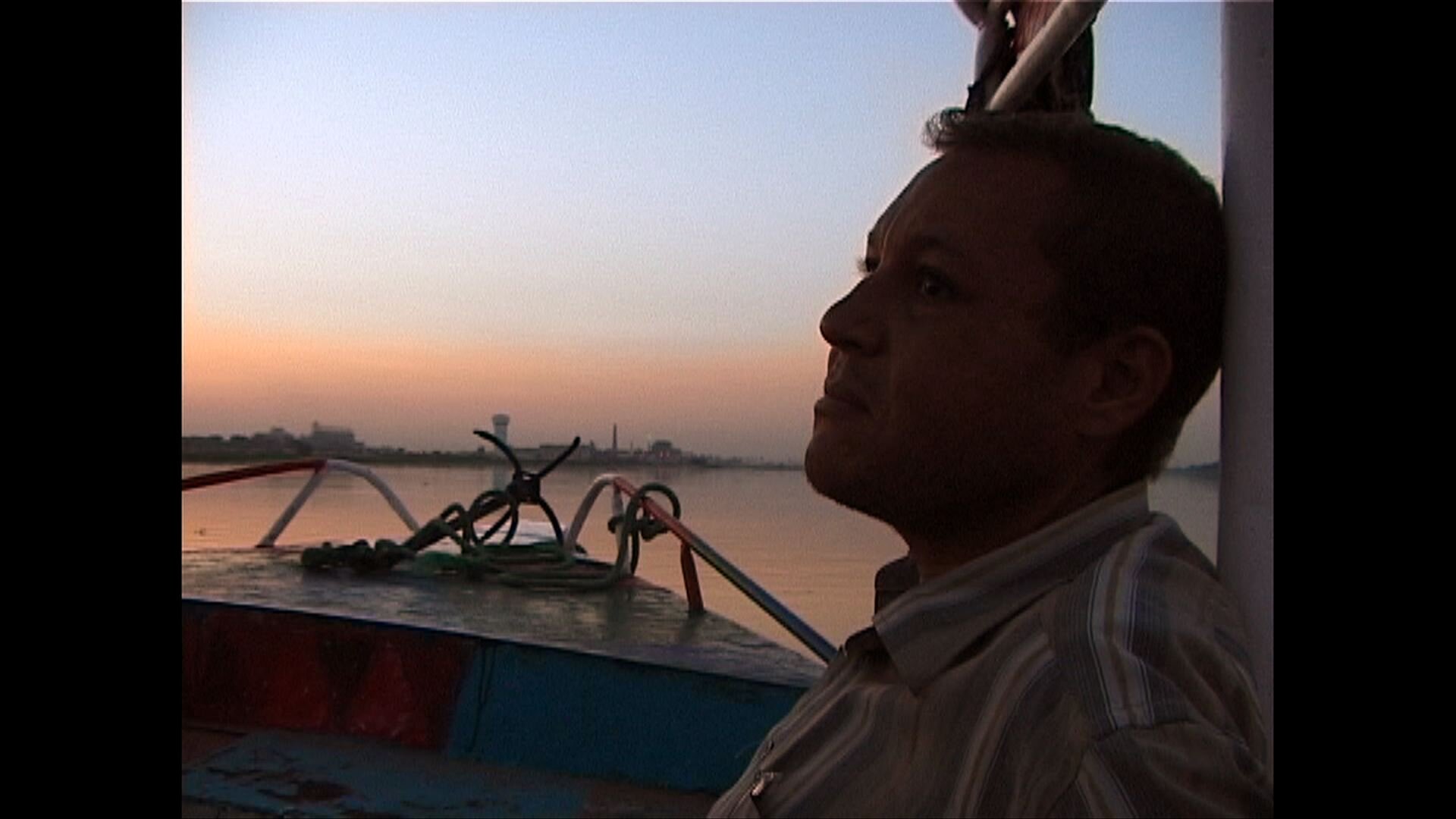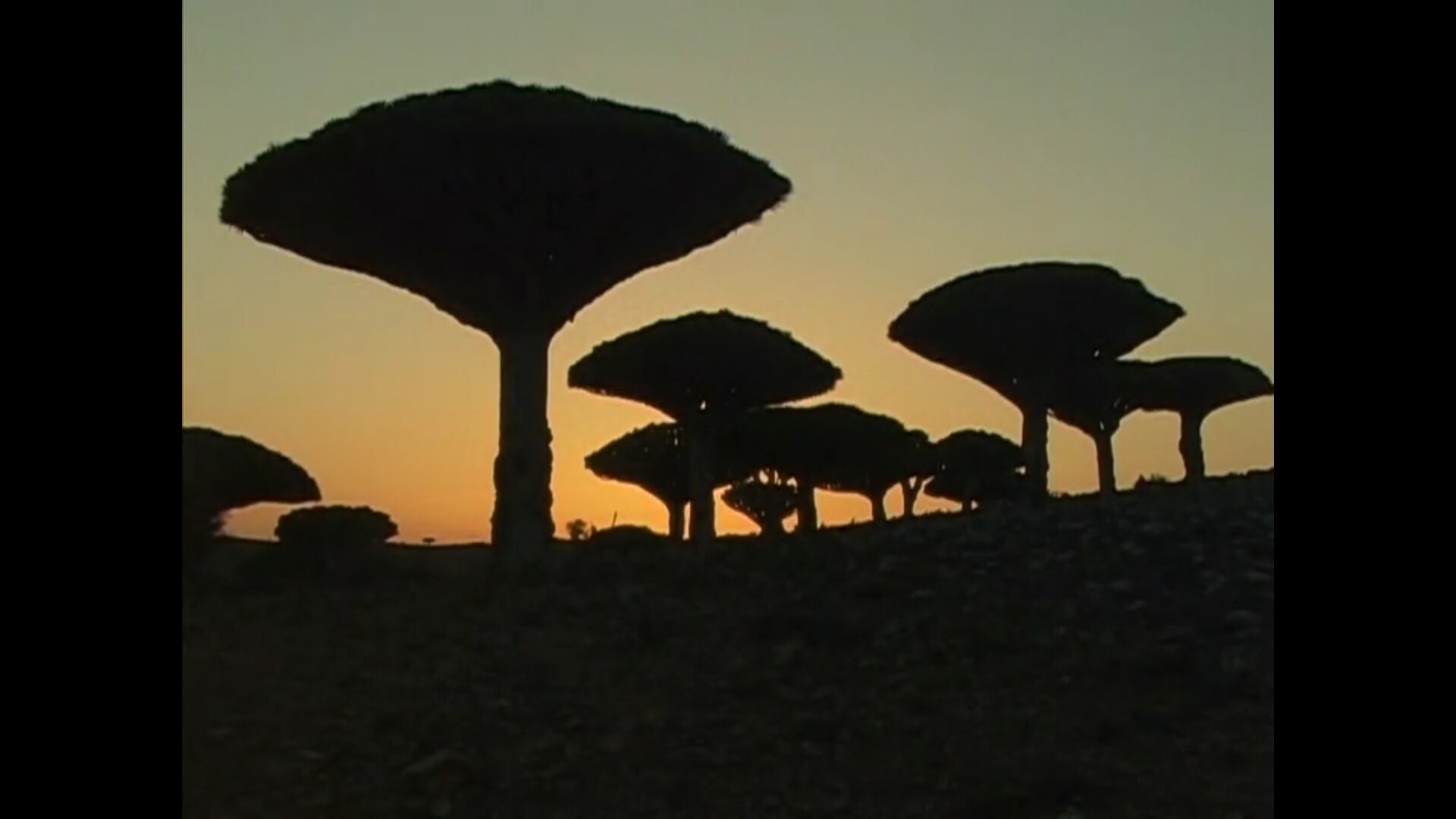SAVED FROM THE WATERS: FILMS BY SAFAA FATHY
Tamaas/Earth Arts Justice, ArteEast, and Maysles Documentary Center present nine films by Egyptian/French poet and filmmaker Safaa Fathy that offer a window into Fathy’s expansive body of work and practice. Present in her films as both poet and documentarian, Fathy deftly and tenderly brings to light searingly raw elements of life, religion, and society—sometimes in little known pockets of the world—through an intimate and reflective lens that reveals the subtle and complex depths of human psychology. Join us on this journey.
Safaa Fathy is an Egyptian/French poet, documentary filmmaker, playwright, and essayist. Born in Egypt, she moved to France in 1981 and obtained her PhD from the Sorbonne in Paris in 1993. She was Program Director at the International College of Philosophy from 2010-2016. Fathy is the author of the plays Aquarius, in Sillas en la frontera, and Ordalie/Terreur (with an introduction by Jacques Derrida), and co-author with Jacques Derrida of Tourner les mots: au bord d’un film. Her books of poetry include Revolution Goes Through Walls (SplitLevel) and A Name to the Sea (Dar Al Nahda). Her films include Mohammad Saved from the Waters, Derrida’s Elsewhere and a film poem Nom à la mer. Her most recent essays are Au nom de la Murale (Europe N. 1053-1053) and De mur en mur (rue Descartes N.92). Other than Egypt and France, she has lived and worked in Germany, Mexico, and the United States.
These films are presented alongside three virtual live streamed events with Safaa Fathy in conversation with esteemed artists, thinkers and educators on a biweekly basis.
Kay Dickinson is a professor of cinema at Concordia University in Montreal. Her most recent publications include Arab Cinema Travels: Transnational Syria, Palestine, Dubai and Beyond (2016) and Arab Film and Video Manifestos (2018). Her research is dedicated to thinking through how various media function amid and in resistance to the machinations of transnational global capital.
On Tuesday, September 22nd at 6pm EDT, the Maysles Documentary Center will host a discussion between Kay Dickinson & Safaa Fathy focused on filmmaking.
Mona Kareem, a poet, translator and currently Princeton University’s Translator in Residence, will be talking to Safaa Fathy about the relationship between poetry and film in Hidden Valley and a few other shorts in the program.
On Sunday, October 4th at 3pm EDT, Tamaas/Earth Arts Justice will host a discussion between Mona Kareem and Safaa Fathy with an emphasis on poetry.
Sherine Hafez is the chair and professor in the Department of Gender and Sexuality Studies at University of California, Riverside. She is co-editor of Journal of Middle East Women's Studies and is the author of An Islam of Her Own and Women of Miden.
On Sunday, October 25th at 3pm EDT ArtEaste will host a discussion between Safaa Fathy & Sherine Hafez
The Films of safaa fathy
Muhammad Saved From Waters
Mohammed Saved from the Waters weaves together family history and the movements of the Nile River. In filmmaker Safaa Fathy’s home city of Al Minia, her brother navigates his own kidney failure with extended family asking him to have a kidney transplant. People, cities and landscapes are depicted as an inseparable network in which triumphs, failures and processes are all connected.
I Left My Eyes Behind
A daughter removed from her parents' arms. Things thrown into the water. A boy telling how he was hit by Daesh. Searching among the shards of destroyed homes. A shoe. A man hovering in shock. Refugee becomes a nimble, emotive, and above all human concept in this film on Iraqi-Kurdish camps. Coming to know, without possibly knowing. Coming to see, without the eyes to see, what happened then, what's happening now.
The Silence (1997)
Le Silence depicts the weight of diaspora through the daily life of one North African family in Europe. A father’s idleness and alienation in a foreign land morph into an austerely protective gaze surrounding his young daughter as she discovers her feminine self. The quietude lacing the corners of this family’s world bear witness to the consequences of displacement and the tangibility of loss set in a seemingly unperturbed outside world.
Hidden Valley (2007)
As if wandering through someone’s blurred memory, the camera captures dreamlike flashes through faded colors and imperfect images. The sea and the desert replace a house as the setting for a doll, a plate of oranges, a thrown coat and other objects. In this poetic film, spoken word poetry is not there to complement the visual image. Instead, each is a standalone monologue, but when seamlessly woven together, they initiate a dialogue that creates a whole new text.
Ghazeia Dancers of Egypt (1993)
Amid glimmers of sequins, song and laughter, Ghazeia Dancers Of Egypt approaches the labour, aspirations and conflicting social realities of two women dancers living and working in Egypt. Sabah and Naghib are celebrated and admired in their vocations and must simultaneously navigate the disdain and suspicion tied into family, jealousy, stigma, class differences, and the relative conditions of freedom transmitted across generations. This documentary offers a portrait of what it is to live in the midst of these tensions: to negotiate personal will, respectability and dignity within socio-cultural expectations. These women do so in strength, delight, mastery and with vivid intelligence of their bodies and their power in the dusky theatre of night as in the light of day.
Dardasha (2006)
Set in Socotra Island, a secluded enclave nestled between the Red Sea and the Indian Ocean off the coast of Yemen, Dardasha, or "chatter" in Arabic, is a feature documentary infused with mythical lore and visions of a landscape mystifying in its rarity. Against sweeping backdrops of omnipotent mountain and somber sea, Socotri inhabitants narrate island stories carried through the generations, like that of the native Dragon Blood tree, or of Cain and Abel, in Arabic, Dam Al Akhawein (the blood of two brothers), whose blood is said to have seeped into the land giving birth to its peculiar vegetal essence. Under full moons encircling night fires and tea, local men sing folk songs, trail into philosophical ruminations over death and the afterlife, and fall into all manners of chit-chatter about the idiosyncrasies of their beloved island.
Maxime Rodinson Atheist of the Gods (1996)
From his home library, the historian, sociologist and orientalist Maxim Rodinson tells his own story. He generously speaks about his origin, his relation with his parents and his sister revealing a rarely seen sentimental side of his character. Archival photographs and day-in-the-life scenes compliment this unique interview making this film an enticing opportunity to know the humanity of Rodinson and the experiences that have shaped his influential thinking.
Derrida’s Elsewhere (1999)
Safaa Fathy accompanies philosopher Jacques Derrida across the Mediterranean seaside of Algeria, the sublime hideaway of his book-lined attic, and through various classrooms and lecture halls in Paris, California and elsewhere. Many differentiated yet circuitous lines of discourse develop, pertinent most especially to the post-colonial subject and an elusive “we”. Place and non-place, selfhood and identity are made supple and intricately undone through curious scrutiny. “If you don’t deal with your unconscious well,” says Derrida, “the exercise of political responsibility will suffer.” Ecstatic and desolate, poetic and cyclical, this is a film that bears repetition well in its proliferating emanations of thought and being.
Tahrir: Raise, raise your voice! (2011 - work in progress)
Featuring edited but not finalised footage from the Egyptian Revolution that erupted in the streets of Cairo in early 2011, Tahrir: Raise, raise your voice! is Safaa Fathy’s visual diary of the jubilance, chaos, anger, frustration, and indomitable hope that took hold of the streets and squares of the city over the course of eighteen days before the deposed president Husni Mubarak stepped down. We see protestors at every corner, at times speaking to the camera, to the world, to one another, then drowning in chants and singing folkloric political songs. “Ah ya Masr! (Oh, Egypt!)” reverberates and floats like a sheltering cloud above the sea of those seeking the promise of freedom. Tahrir: Raise, raise your voice! is a view from the passenger seat of a rugged ride traversing through crowded alleyways, en route to rebirth.
Presented By














